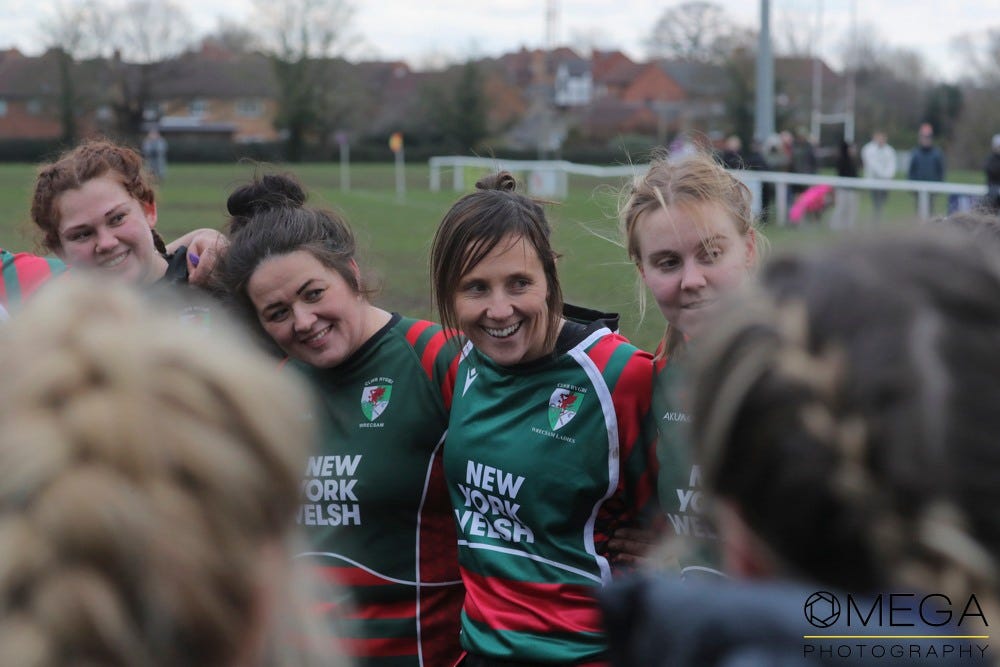Running clubs, rugby and menopause
Tara Masand runs women-only running sessions. She speaks about a rugby club's potential to host similar events, how to engage menopausal women within physical activity and why.
After having my boys, I felt the need to find something that was just for me (a space for me to focus my time and energy) so I took up running.
As they grew, I began to consider returning to work. However, with hospitality being far from family-friendly, I knew I needed to rethink my career path.
Running had become more than a hobby as it gave me a sense of freedom and well-being that I needed.
Inspired by this, I decided to retrain as a running coach, with the hope of helping others feel better about themselves through movement.
I did sit on my qualification for a while, unsure of where to start and what to do with my new qualification, but a gentle push from someone encouraged me to launch a running group.
This started something bigger with more and more women began to join, and from this my small community interest company was born.
Over the years of running my groups, I’ve come to appreciate the unique benefits of women-only running clubs. These spaces offer a safe, supportive, and non-judgmental environment where women can be themselves, to sharing stories, exchanging advice, and connecting over their personal journeys.
What I have noticed over time is the uplifting energy that emerges when women run together. Challenges are met with humor, not pressure; and rather than focusing on competition, there’s a shared spirit of encouragement.
In mixed-gender exercise groups, many women tend to hold back, but in these all-female groups, they laugh more freely, and genuinely enjoy the sessions.
Engaging menopausal women in physical activity
One of my earlier funded projects, New Habits, was created for women navigating the menopause and for new mums. This started as life slowly returned to normal after Covid and arose from a clear need - to help these women reconnect, move their bodies, and reduce the sense of isolation the previous years had brought.
During the project the groups offered more than just activity; they created a welcoming space where women at similar stages of life could meet, share, and support one another through the highs and lows of their journeys.
To engage and retain menopausal women, sporting providers need understand the challenges this stage of life can bring, whether it's hot flushes, fatigue, or changes in confidence. It helps when an environment that’s welcoming, supportive, and free from judgement is created.
From what I’ve seen in my own groups, women benefit from a space where they can move at their own pace, connect with others going through similar experiences and feel part of a community.
Offering flexibility (like session times that fit around work and family) and using relatable, positive messaging rather than focusing on weight or appearance also makes a big difference.
At the end of the day, it is all about helping women feel seen, understood, and empowered to keep showing up for themselves.
Over the years, many of the women who have joined my sessions have shared that their main reason for coming is their mental health, with fitness being a welcome bonus.
Others have told me that even signing up to events or sessions have taken them out of their comfort zone, but once they’ve come along, they leave feeling uplifted and looking forward to the next one.
Honestly, hearing feedback like this is what has driven me to push for even more women-only classes in my local area. There’s something truly special about creating a space where women feel safe, supported, and seen.
Use your rugby club for more than just rugby
Rugby clubs often have brilliant potential when it comes to community wellbeing. The open pitches and a clubhouse on-site they offer are perfect for women only classes, with benefit going beyond just physical activity.
It has the potential to create a space where women can feel safe, welcomed, and free to move without judgement. The familiarity of a local sports club makes it feel accessible, and having a base like the clubhouse gives the opportunity to extend that connection, for example staying for a cuppa and a chat after a session.
This kind of social support can make a huge difference, especially for women who might be new to exercise or returning after a long break.
It’s also a great way for rugby clubs to strengthen their place in the wider community, to show they’re inclusive, as well as make better use of their space outside of match days and training nights. Some women only running sessions could also bring in new faces.
Find out more about Tara’s work
Did you know there’s a subscription option for Coaching Care Creativity? Nothing is behind a paywall so your subscriptions or coffee clicks can help keep the content going. The subscriptions are £5 a month or £50 for the year. You can also buy me a one-off coffee for just £5.



